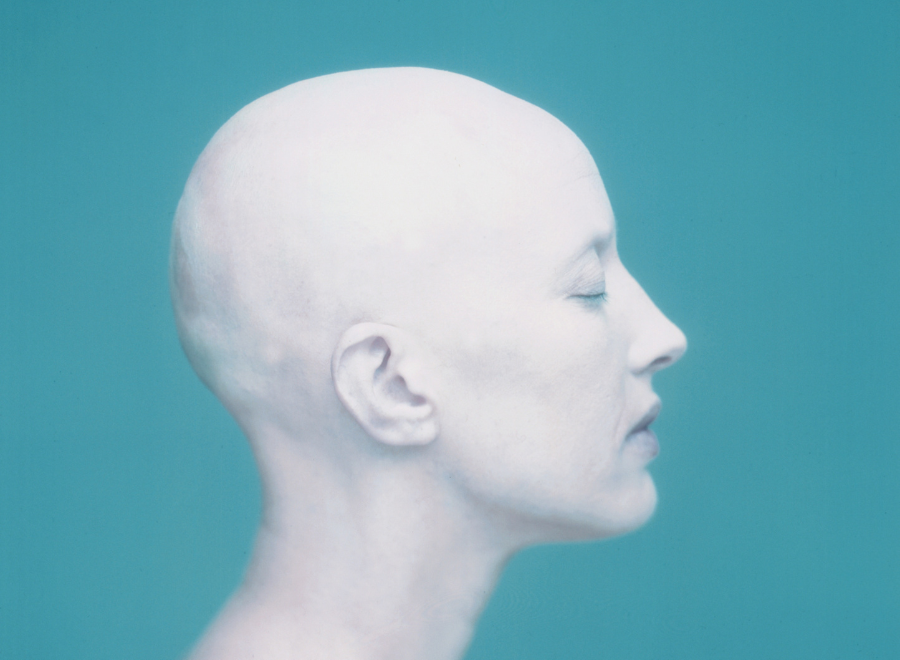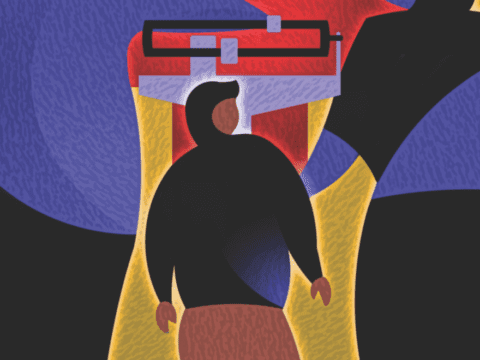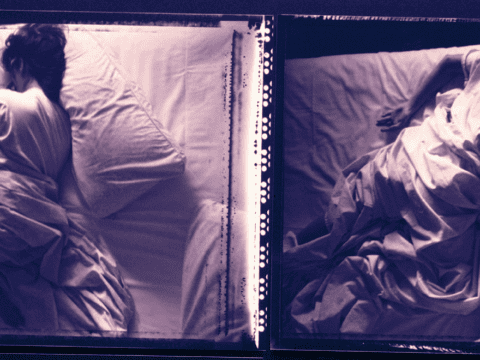He was windswept and breathless the day he swooped in my back door, standing there with his eyes flashing for a moment before the words came out. “I’ve got cancer,” he said, lifting his hand to his forehead in the shape of a big C.
That was my brother-in-law John Patterson’s first brush with cancer. It affected his prostate, and he dutifully had the gland removed. We all breathed a sigh of relief, until, 15 months later, he got far worse news.
This time it was melanoma, the most lethal form of skin cancer, and it had spread to his lymph system. His doctors removed the lesion and a bunch of lymph nodes and told him they had nothing to offer but a bleak prognosis.
Only 60 percent of people with his type of cancer are still alive five years after diagnosis. The C on his forehead had gotten bigger. He was 66.
I cried for a week and then, because I’m a science journalist, became his researcher,feverishly examining the merits of alternative and experimental treatments. For me, it was all about the science of cancer, how it moves through the body and what might be able to stop it.
But the next year, when my daughter, Calista, then 21, was diagnosed with thyroid cancer, my focus shifted. Even though her doctors assured us that she would be fine and quickly performed surgery, I was inconsolable. Dread suffused me. One day, I found myself lying on the floor of my office, keening.
Bereft of research to do on treatments, I launched into a quest to understand what cancer means culturally. Why is it so resonant?
On the surface of it, cancer is pretty straightforward. One single cell of the body’s 10 trillion goes rogue and the immune system doesn’t catch it.
“Rogue” means that a few pieces of the cell’s genetic instruction book get messed up, allowing it to do three main things that normal cells don’t do: multiply and evolve endlessly, make itself a blood supply and travel around.
There’s more cancer than ever. The World Health Organization (WHO) calculates that another 11 million people will be diagnosed this year. By 2020, it will be 15.5 million, growing with the population and especially with the elderly. (Older cells have more time to mutate, so cancer affects the old far more than the young.)
Cancer is less deadly than it was a few decades ago as those damaged cells gradually give up their secrets to medical science and as once-experimental treatments become more effective. But in 2008, 7.6 million people died of cancer, making it one of the leading causes of death in the world, mainly because modern medicine has cured many of the diseases that used to kill us young.
And yet, as the late American author Susan Sontag explained in her 1978 treatise Illness as Metaphor, modern society has endowed cancer with powerful symbolism that goes far beyond either its physiology or its reach. It’s not just a reprobate cell, debauched by chance.
Instead, as I parsed cancer’s meaning and talked with those who have it, I realized that cancer is cast as a horrifying billboard for the sufferer’s secret sins, and by extension, society’s deepest fears. It has become a metaphor, proof that modernity itself is wicked.
First of all, though, it is personal punishment. Your secret excesses are writ large in the fatal perversion of your microscopic double-stranded helixes. Disease, as Sontag observed, becomes a language for dramatizing what’s going on within.
And it’s your fault. The WHO website, for example, says that at least a third of the world’s cancer cases and deaths are preventable. It recommends avoiding an unhealthy lifestyle, meaning smoking tobacco or drinking alcohol or having a poor diet or not exercising enough or being too fat. The clear implication is that if you’ve got cancer, you’ve probably done something wrong.
Jane Cawthorne, who was diagnosed with Hodgkin’s lymphoma in 2004, writes in her essay The Cure for a Cancer Cliché, “Any failure to take care of ourselves, get enough exercise or eat well becomes a source of blame. . . . Like the warning against a negative attitude, focusing on how people cause their own cancer is a powerful tool to keep us all quiet. We must reap what we sow, pay our karmic debt, live (or die) with the consequences of our actions. Under the circumstances, we are lucky to get any help at all.”
The narrative of personal blame is so overpowering among cancer patients themselves that cancer centre psychologists routinely ask, as they did Cawthorne, “Why do you think you have cancer?” (For the record, my daughter’s doctors never grilled her about her lifestyle or implied she was responsible for her cancer.)
Blaming patients for having cancer is now the public narrative, too.
Thanks to the actor Michael Douglas, if you get mouth or throat cancer, you’d be pardoned for thinking it’s because you once had oral sex.
Breast cancer? The lore is that it happens because you didn’t have children, didn’t have them early enough, didn’t breastfeed them, didn’t breastfeed them long enough, drank too much red wine or ate too much fat, or a combination of these. In other words, you were somehow self-indulgent.
Men with prostate cancer routinely report being ribbed by insensitive buddies that they got it from having too little sex, the sin of repression. (Actually, one 2001 study suggests that the risk rises with the number of one’s female, not male, sex partners and with any gonorrhea infection. But frequency of intercourse isn’t a factor.)
People with thyroid tumours hear that their throats are literally closing up because they haven’t been vocal enough about their feelings and that emotion has to go somewhere.
Bowel cancer is a sure sign of the dreadful moral failing of constipation.
Cervical cancer means you had too many sex partners too young and (gasp) without the use of condoms and spermicidal foam.
Melanoma is evidence of the sin of hubris: going into the sun without adequate sunscreen. A single burn when you were a child, the literature tells us, could trigger the fatal misery, thus implicating negligent parenting along with everything else.
And if you read the scientific literature, the medical quest to figure out why that one cell’s genetic makeup went kerflooey in the first place – or why the immune system failed to stop it – often centres on investigations of personal tendencies.
For example, there has been a robust scientific discussion since the 1970s about whether there is a “cancer personality,” meaning you lack autonomy, suppress your emotions and suffer from chronic stress, depression and helplessness, leading to a crummy immune system that leaves your body unable to fight cancer. A paper in 2010 called for the theory to receive a “decent burial” based on lack of evidence, an indicator that even doctors are still influenced by the idea.
But if that theory has been discredited, other personal choices are under active investigation. Here is a recent smattering, courtesy of the science news aggregator Science Daily: the more alcohol a young woman drinks before motherhood, the greater her risk of breast cancer; eating yellow-orange vegetables reduces the risk of invasive bladder cancer in women, but not in men; failing to brush and floss regularly can lead to the cancer-causing oral HPV (human papillomavirus) infection; pancreatic cancer can stem from a poor diet; dying from pancreatic cancer is linked to heavy drinking; drinking four or more cups of coffee a day can forestall the recurrence and spread of prostate cancer.
What’s lost in all this is that none of these factors is absolute. Each of those personal habits or activities is loosely linked to getting cancer, likely in combination with a host of other unknown factors. The truth is that we still don’t know all that much about how we get most types of cancer. Yet these maxims, and many more, show up as a mysterious, ever-changing, contradictory and tyrannical lifestyle code that we all must follow lest we be fated to join the brotherhood of the damned.
The exception is smoking, which is tightly tied to incidence of lung cancer. Of course, the tobacco industry fought this link for decades, even as the studies became more and more declarative. In fact, nearly a quarter of cancer deaths worldwide are from tobacco-related cancer, by far the most common type. Imagine a world without tobacco and you can instantly see a world with far less cancer.
Human civilization has a long history of making illnesses it doesn’t understand symbolic, just as it once thought foul weather and natural disasters were proof of a god’s displeasure.
Take the Black Death of the 14th century. It killed 100 million people in Europe alone, wiping out as much as 75 percent of the population in some regions. People saw it as the hand of the divine smiting a sinful society. This sentiment spawned the Flagellants, tens of thousands of travelling religious adherents who flayed themselves in public to atone for sin. Their numbers peaked during the plague.
Tuberculosis, which was responsible for a quarter of all European deaths in the 19th century, was seen as evidence of one’s moral weakness. People wasted away because they lacked ambition or were sensitive romantics with unfulfilled souls.
In the first half of the 20th century, the scourge was infectious diseases, like the Spanish flu of 1918. It killed as many as 130 million and infected half a billion, which was more than a quarter of the world’s population. Like an enemy mercilessly strafing from above, it was popularly seen as another phase of the First World War, over which a guiltless people had little control.
By the 1980s and ’90s, HIV/AIDS, the tiny, virulent virus, sometimes spread by sexual activity, bore the weight of multiple mythologies. As Sontag wrote in her 1989 book AIDS and Its Metaphors, society viewed the disease as personal punishment for having sex, having a certain type of sex, being sexually open, and even being politically liberal, among other things.
Today’s plague is cancer. Siddhartha Mukherjee, the oncologist and author of the 2010 Pulitzer Prize-winning biography of cancer, The Emperor of All Maladies, writes, “Every era casts illness in its own image. Society, like the ultimate psychosomatic patient, matches its medical afflictions to its psychological crises.”
What are the crises? Mukherjee lists some of the contemporary images that describe both society and cancer: excess, rapaciousness, rugged individuality, expansionism, desperation, ferocity. Our fear of cancer is amplified by our fear that society itself is fatally flawed, eating itself from within, putting us all at risk. Cancer is, on a deep level, a spiritual and psychological phenomenon as well as a medical one.
But how to rewrite the cancer narrative? Maybe a little science. The Black Plague was caused by a bacterium, Yersinia pestis, not the wrath of God. Tuberculosis is caused by a fatty, static, slowly reproducing bacterium named after the disease that attacks the lungs, not a person’s lack of ambition. The Spanish flu was viral. None of these mechanisms of disease was understood when the illnesses carried the psychological freight of their era. And as for HIV/AIDS, it has patiently been recast as a preventable public health issue rather than a plague on the sexually active.
Cancer happens because a cell goes wonky. Sometimes, this is because the body has endured a chemical assault of some sort, as from asbestos, or a high dose of radioactivity, as from the Chernobyl meltdown.
Sometimes, it’s inherited, as actor Angelina Jolie demonstrated earlier this year when she had a preventative double mastectomy because she carries a gene mutation that predisposes her to breast cancer. It was a powerful, even startling message that sometimes, cancer is just a disease, not a personal failing. It does not have to be, as Sontag writes, morally contagious.
I recently interviewed Andrew Hessel, a Canadian research scientist who studies synthetic biology, or making artificial life. Already, he and others are looking at creating artificial viruses that could hunt and kill specific cancer cells, a tool that may be just a few years away. Getting cancer would be like getting strep throat: you just get a custom-made pill.
Thinking of cancer that way would feel different from wearing the big C on your forehead. Having cancer would carry a different cultural meaning.
My brother-in-law opted for a low-tech version of the artificial virus: regular, massive doses of intravenous vitamin C, which some studies are showing can kill off cancer cells. It’s an experimental treatment that he gets through his naturopath. So far, nearly four years after his diagnosis, his health is excellent, but perhaps it would have been without the infusions. It’s hard to know.
My daughter, now 23, has twice shut herself up alone in a lead-lined room at the hospital, swallowed radioactive iodine, and then sequestered herself from society until she was no longer dangerous to others, a strategy to eradicate every last thyroid cell from her body. In June, when her doctor told us the cancer is gone for now, my throat narrowed in a spasm of emotion so sharp I couldn’t talk for half an hour.
***
This story first appeared in The United Church Observer’s November 2013 issue with the title “Malignant metaphor.”















